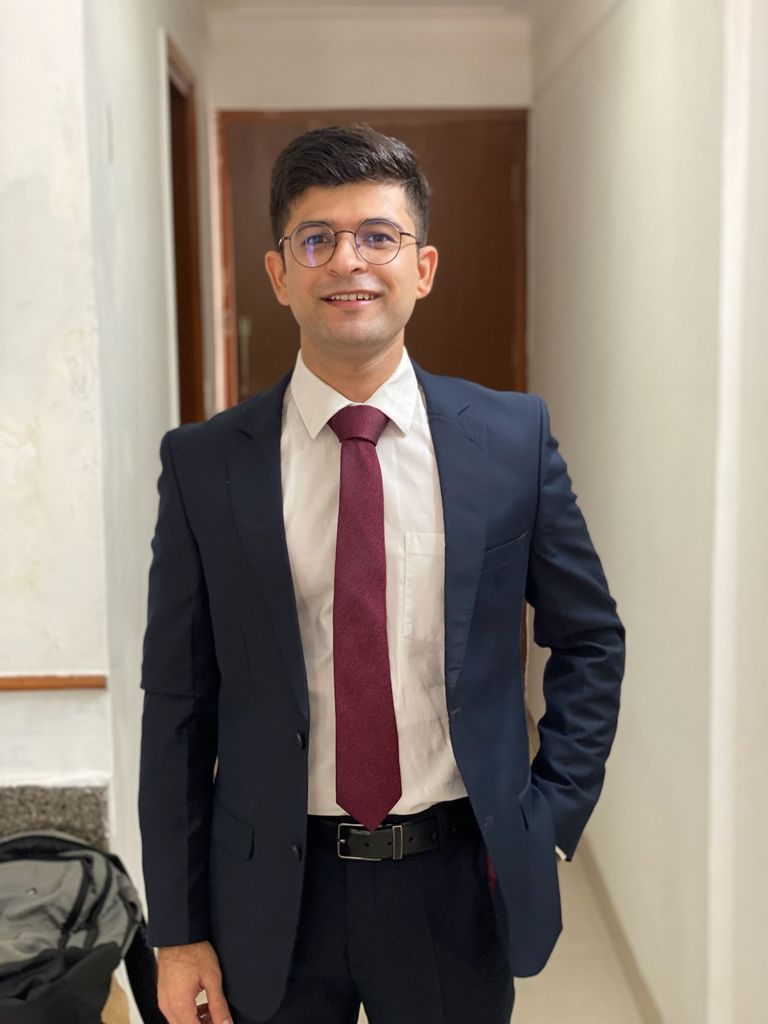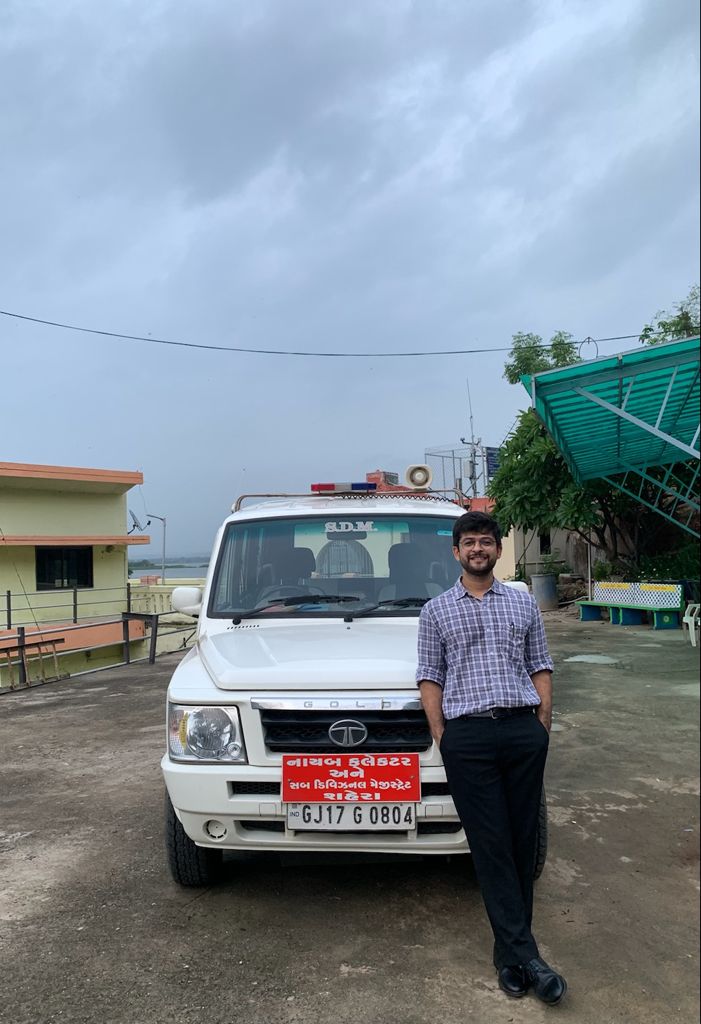How to Plan a Timetable That Covers UPSC Syllabus: IPS Officer Shares Preparation Strategy
From covering the syllabus for prelims to answer writing for mains, IAS officer Valay Vaidya shares the preparation strategy that helped me ace UPSC CSE.

‘It has been five years since I started my UPSC preparation. Today, my five-year plan comes to an end. I got an AIR 116 in UPSC CSE 2020-21.’
This was a tweet that Valay Vaidya posted as soon as the Union Public Service Commission (UPSC) announced its Civil Service Examination (CSE) 2020-2021 results. Having appeared for the CSE four times since 2016, Valay shares the strategy that worked best for him.
A BTech graduate, Valay says that he started preparing for the CSE in 2015 just after he graduated. In the 2018-2019 CSE, he also made it to the interview stage and subsequently got selected for the Gujarat Administrative Service and was posted as a probationary officer for the last two years.
Speaking to The Better India, he says, “The scale at which this platform allows officers to work was one of the reasons why I kept trying to make the cut. I wanted to work in this large-scale setting and clearing a national level examination was a personal goal that I wanted to achieve.”
Valay’s tips for future aspirants:

1. Start with subjects you can tackle with ease:
“Starting your preparation journey with subjects that you have a strong hold over will help in boosting your confidence. I started with history given that it was a subject that I had a basic understanding of and would take me a shorter period of time to complete. Once you gain the momentum moving on to difficult subjects and tackling them becomes easier,” says Valay. Approachable and familiar subjects will ease you into the preparation journey.
2. Inculcate the habit of reading a newspaper:
“Until the time I started preparing for the CSE, I would not spend as much time on reading the newspaper. Once I started the preparation journey, I would spend close to 45 minutes each day reading through The Hindu. It is also important to start sifting through the contents in a newspaper from the beginning. Always keep the syllabus at the back of your mind while reading the newspaper. For example, do not spend time reading politics, however, spend time on polity. With the passage of time aspirants will get a hang of what is important and what can be left out,” he says.
3. Be smart in preparing:
“Do not waste time on making notes on general awareness topics. There are various institutes that do just this and using those consolidated notes for these subjects is more than enough. An aspirant should instead use that time on preparing for other topics and making notes accordingly,” says Valay.
4. Plan ahead:
Having started his preparation in July 2016, Valay shares that by January he was done with a one time reading and understanding of all the general studies subjects and also had completed one round of optional subject reading for the mains. “Once I had completed this first round of reading I started revising. It was in the revision stage that I moved on from the NCERT books to other books like Laxmikanth for Polity and Spectrum for Modern History. That helped in building on my existing knowledge base,” he says.
5. Attempt one mock paper a day:
As the exam date approaches, Valay suggests that aspirants spend time on solving one mock paper a day. He says, “Not just attempt but one must also spend time in analysing the paper and looking at the mistakes that they have committed. This will give you a very clear understanding of where you stand.” Valay himself solved close to 150 mock papers before attempting the prelims.
6. Focus on answer writing:

Once the prelims were out of the way Valay then started to focus on answer writing for the mains. He would attempt five to six questions each day as part of his preparation. “To save time and get more answers in, I would jot down the framework I would use to write my answers and also jot down the points I would incorporate in the answer. I would have a clear opening, body and conclusion in my answer. Once done I would check with the answer key to check if I have missed any important points. This will help in understanding how to approach the questions,” he says.
7. Find ways to do thematic study:
He explains, “If I were to pick a particular topic – I would ensure that I collected as much information about it as possible. If I were to study about infrastructure, the notes I make from various sources would be my go-to for the topic and I would not pick any other material or book for the same.” As and when newer data would come in for that particular topic, Valay says that he would add it into the same material that he collated.
8. Analyse previous years’ papers:
“This analysis is important because it makes preparing easier. Always look at the previous year papers to get a sense of what topics are important and what you can afford to leave out while studying. There might be areas that you believe are important but are never asked from the exam point of view,” he says. He urges aspirants to do a thorough cost-benefit analysis with the help of previous years’ question papers.
9. Be process-oriented, not result-driven:
Speaking from experience, Valay says, “Keep refining the process you are adopting while studying for this examination. While the result is important, do not get fixated on that. Enjoy the process of studying and give your 100 per cent. The marks will follow thereafter. Doing this will also help you maintain your cool and continue with your preparation.” He also adds that one must be in it for the long haul to see success.
10. Set small targets:
“Instead of looking at completing very large portions, set small achievable targets. These can be broken into weekly targets or even daily targets. Achieving the targets will also give you a sense of accomplishment and motivate you to study better. Along with all the preparation it is also important to continue to nurture a hobby that you can fall back on when you feel stressed,” he says. He also urges aspirants to spend some time each day on exercising to stay physically fit.
11. Revision is key:
“The more you revise, the better your understanding of the subject. I found that writing the points down helped me recollect better. I would also use acronyms and slogans to remember important points,” he says. Citing an example, he says, “I learnt the names of the tributaries of Ganga by making a slogan out of the names of the tributaries. This catchy slogan is something that stayed with me and made it very easy to remember. Be innovative in how you study as well,” he says.
12. Use technology to your advantage:
Given how dependent we are on technology, Valay urges aspirants to leverage it to their advantage. “I used Evernote, an app that helps take notes. If I found an interesting article, I would copy it onto the app and read through it when I had the time. This saved me time and also helped me read on the go. This also gave me the ability to structure my answer in a very holistic manner,” he says.
(Edited by Yoshita Rao)

Similar Story

Ex-IRS Officer’s Free UPSC CSE Course Eliminates Need for Paid Coaching
An IRS officer-turned-educator, Ravi Kapoor has mentored thousands of UPSC aspirants for free. Taking upon his 10 years of bureaucratic experience and masters in clinical psychology, Ravi’s approach to UPSC mentorship has always kept mental fitness and motivation in focus.
Read more >
If you found our stories insightful, informative, or even just enjoyable, we invite you to consider making a voluntary payment to support the work we do at The Better India. Your contribution helps us continue producing quality content that educates, inspires, and drives positive change.
Choose one of the payment options below for your contribution-
By paying for the stories you value, you directly contribute to sustaining our efforts focused on making a difference in the world. Together, let's ensure that impactful stories continue to be told and shared, enriching lives and communities alike.
Thank you for your support. Here are some frequently asked questions you might find helpful to know why you are contributing?


This story made me
-
97
-
121
-
89
-
167












